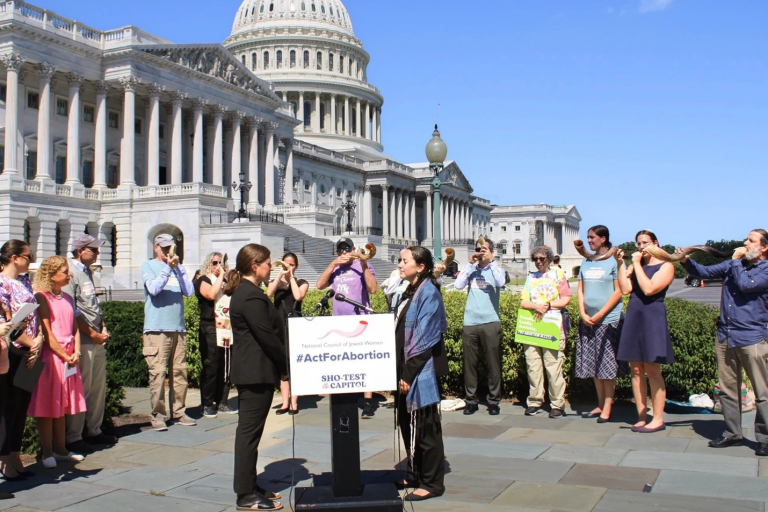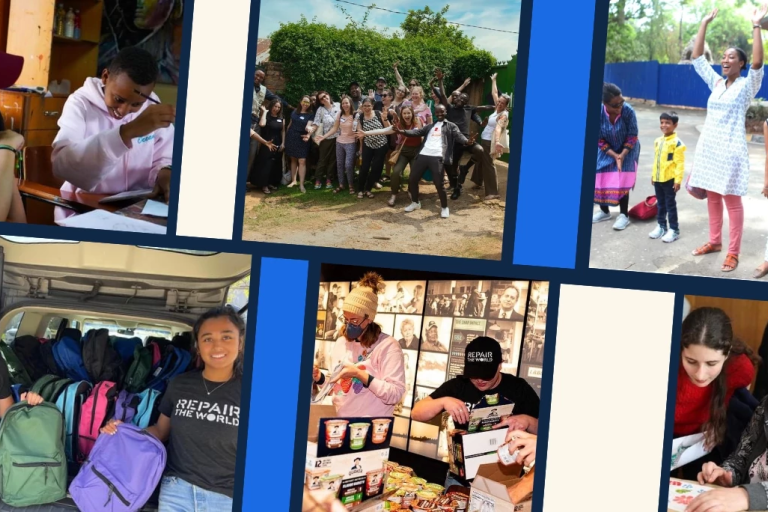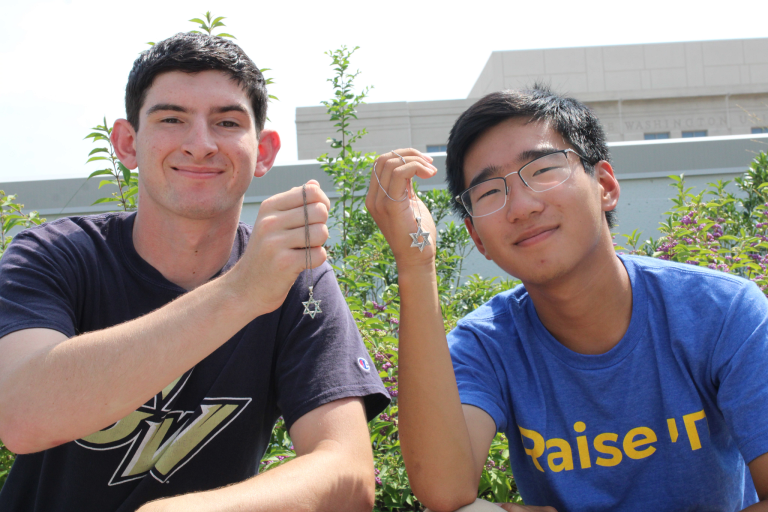By
Published
September 9, 2013
Tags
 Joel Stanley is Director of International Programming for Moishe House, a founding resident of Moishe House London and a key organizer for this year’s Grassroots Jews: Independent Rosh Hashanah and Yom Kippur Services in London.
Joel Stanley is Director of International Programming for Moishe House, a founding resident of Moishe House London and a key organizer for this year’s Grassroots Jews: Independent Rosh Hashanah and Yom Kippur Services in London.
Each day this Rosh Hashanah and Yom Kippur, in an unremarkable suburb of northwest London, 250 young Jews will gather among friends, family and wider community to celebrate the High Holidays together for the fifth year running. Many things make this particular gathering special, but perhaps the most obvious is that it takes place not in a synagogue but a house.
Since its second year, Grassroots Jews–as these ‘High Holiday services plus’ are called–has been hosted by Moishe House London, where five Jewish young adults live and create year-round Jewish programming for their networks and peers. Moishe House London is itself part of a network of 59 houses in 13 countries creating vibrant communities for Jewish young adults.
The partnership with Grassroots Jews has worked well, a natural fit as many of the original founders of Grassroots Jews were involved in Moishe House London and informal, independent minyanim such as Wandering Jews and the Carlebach Minyan.
Grassroots Jews, like Moishe House London, began because someone felt the kind of Jewish community they wanted to experience (creative, stimulating, engaging and in touch with tradition) just did not exist. Someone had to create it. Something else that makes Grassroots Jews special–and inspires me to get involved to help make it happen–is the level of participation and inclusion. Volunteerism is the norm, and none of the organizers are paid for their time and effort towards the event.
Alongside the services, which take place in a large tent in the Moishe House garden, is a full program of ‘Enrichment Sessions’ in different rooms of the house, featuring a huge range of takes and approaches on the season and its themes. The schedule this year includes morning yoga and Qi Gong, learning sessions on the Binding of Isaac in medieval literature and, for the second year running, a ‘round-the-clock’ meditation space during Yom Kippur.
It is a hugely ambitious project and takes a lot of work, not least to provide for the diversity of backgrounds and approaches of all the people who feel a part of it. Because Grassroots grew out of a loose network of Jewish young adults who see each other at a variety of events and programs throughout the year but choose to worship in different ways, it has always set out to include a rainbow of ideologies and needs. Services follow Jewish law (halachah) and at the same time maximize women’s participation and egalitarianism. It is not without tensions. There are those on one side of the spectrum who are used to services with more English and those on the other who come from backgrounds more traditional than this. But they sit, stand and pray together on Rosh Hashanah and Yom Kippur in one of three sections around a ‘trichitza’: a women’s section, a men’s section and a mixed section, each equally close to the bimah and the service leader.
In February, at the ROI Connection Point Shifting Thought, Shifting Action in Berlin, I heard one of this year’s Grassroots Jews coordinators, Debbie Danon, give an extremely inspiring talk on her personal involvement and the philosophy behind the event. She summarized the approach in three key principles: raise expectations, lower barriers to participation and co-create. The challenge that Grassroots Jews meets each year is to demand a rich, complex experience from the High Holidays, while at the same time making that experience as accessible to a diversity of participants as possible. So we have full services with special kavanot–intentions and invitations to reflection and spiritual direction–given in English at key points to draw the community together and help people find meaning in the ritual. Also two community members have created ‘Tefillah maps,’ colorful printed pages illustrating the flow of the service and suggesting more ways for people to connect.
Last week, in Tablet, Abigail Pogrebin wrote how “Rabbis and congregants alike have made synagogue dull. But together we can make it more meaningful and more compelling.” She argues we should be demanding more from our High Holiday services. I believe projects like Grassroots Jews and organizations like Moishe House are heeding that call and being the change they want to see.
For more on Grassroots Jews, visit http://grassrootsjews.org/. For more on Moishe House, visit http://moishehouse.org/.
Read more about Joel in his interview!
The Schusterman Philanthropic Network is proud to empower emerging leaders to explore their values, identity and new ways to strengthen their communities. We believe that as we work together to repair the world, it is important to share our diverse experiences and perspectives along the way. We encourage the expression of personal thoughts and reflections here on the Schusterman blog. Each post reflects solely the opinion of its author and does not necessarily represent the views of the Foundation, its partner organizations or all program participants.




